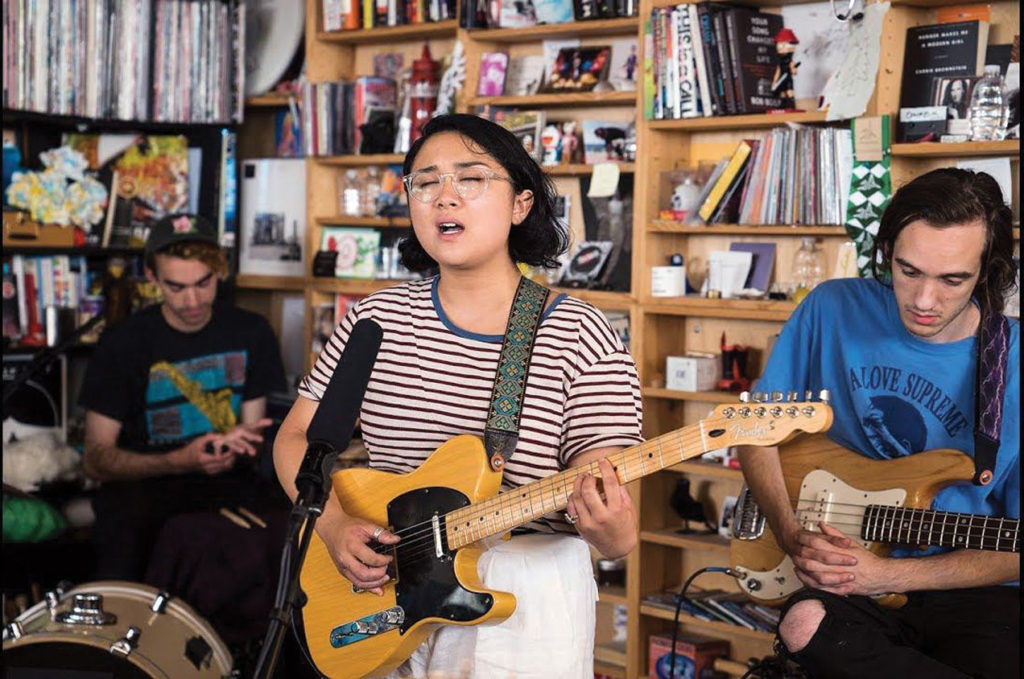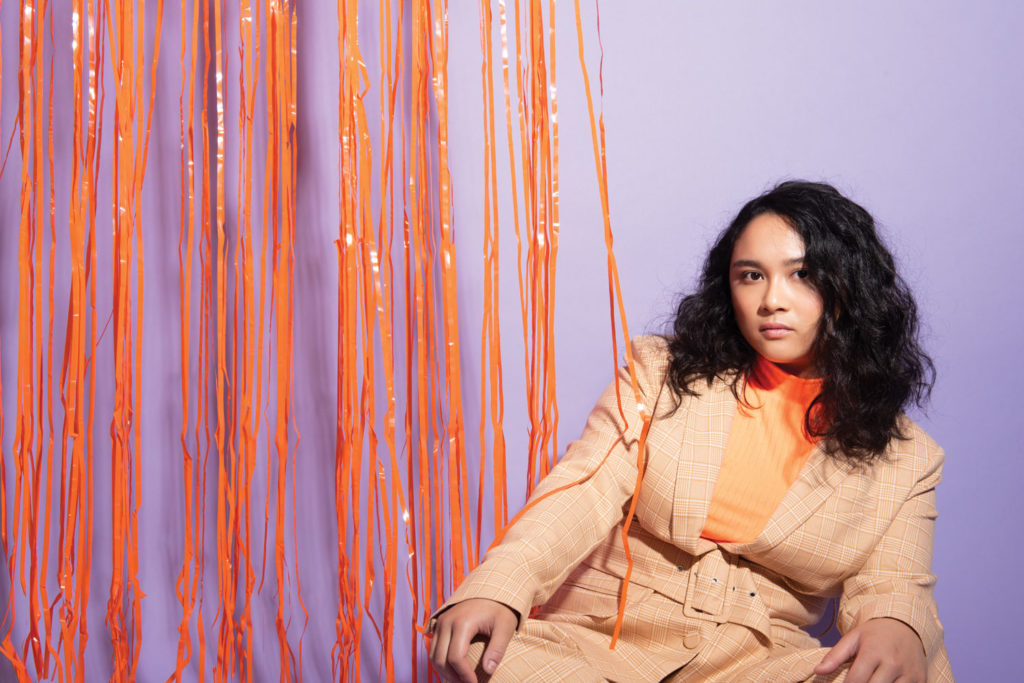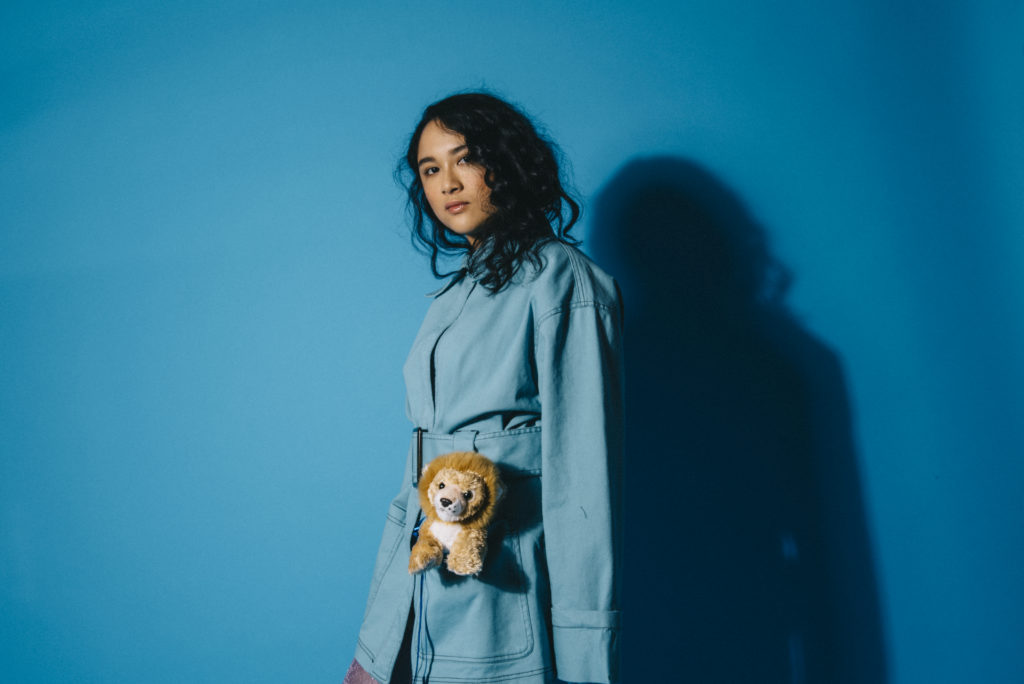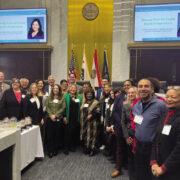
The genre-bending Filipina American Melina Duterte on authentic creative expression, listening to herself and overcoming the anxieties of our life and her latest album “Anak Ko”
Melina Duterte would like to quash falsehoods regarding how she came up with her nom de plume, Jay Som.
“This story gets asked about a lot because there are a lot of wrong information about it,” Duterte, 25, tells the Asian Journal in a phone interview. On the music streaming service Spotify, Duterte’s bio claims that she got the name from a specific name generator inspired by alternative hip-hop artist Childish Gambino.
This isn’t true. She got the name from an obscure baby name generator on the internet, one of the thousands of name generators designed to help parents pick out a name for their baby.
“You know when you’re Googling and you go to the 6th page, like, definitely not one of the top search results,” Duterte says, laughing. “And that’s what I really remembered, and I scrambled a bunch of words and then it came up with Jay Som and the translation was ‘victory moon.’ I thought it sounded great and decided to go with it.”
There is a catch, however.
“Unfortunately, I did find out that there were like 10,000 people actually named Jay Som, but, you know, c’est la vie.”
In any case, it’s probably safe to say that a Google search of Jay Som today will result in top results relating to Duterte’s music, which she’s been recording as Jay Som since 2015.
Yielding the moniker Jay Som from a name generator for babies, specifically, is apropos to the life and career trajectory of the young singer and songwriter who has cultivated Jay Som as a beautifully maturing musical project that transcends the traditional bounds of genre.

The latest creation, the album “Anak Ko” (“My Child”) released on August 23, is Duterte’s sophomore album, an intimate, quarter-life introspection that not only embraces vulnerability but finds strength in it.
To generically summarize Duterte’s sound would be an act of futility; as is the trend in music today, her sound is complex and fluid and refuses to be categorized by a singular genre.
It refreshing call to kindness that combines elements of post-aughts indie rock — as heard in acts such as Death Cab for Cutie and Phil Elverum, and the richness of the euro rock scene of the 1980s à la the Cocteau Twins and The Cure — refined underscored by hazy bedroom pop which has defined the sound of the 2010s.
The soft timbre of Duterte’s voice captures the cool languor of a native Californian with the wisdom of someone with lived experience who is successfully learning to listen to herself. Since then, she has emerged as a tour de force of tenderness, with her music becoming a balm for a digital world obsessed with clout and racked with social anxiety.

Musical beginnings
Born Melanie Mae Duterte in the Bay Area in 1994, Duterte is the daughter of Filipino immigrants who raised Duterte and her brother with the freedom to chase their passions, contrary to the helicopter parenting of Filipino parental stereotypes.
From a young age, Duterte expressed deep fascination with music, playing the trumpet and guitar and participating in family karaoke sessions, a rite of passage for any young Filipino. At the age of 12, she began privately writing and recording music in her bedroom, and planned to attend a conservatory program to pursue jazz, but her love of songwriting led her to study music production and recording instead.
By 2015, she released her first demo “Turn Into,” a kaleidoscopic dreamscape in which a stream of consciousness discusses facing your fears; and, in 2017 came her second creation, “Everybody Works,” an exuberant album that explores relationships and empathy through a blend of dream pop and grunge.
That release propelled the young artist as a burgeoning independent musician, and she began playing concerts and festivals all over the world, performing alongside indie stalwarts such as Paramore, Mitski and Death Cab For Cutie, the last of which was “a huge source of inspiration for me growing up, so it was kind of amazing to share a stage with them.”

Facing reality through sobriety
Although touring is an essential, character-building facet of the job, it has its troubles.
For Duterte, those pitfalls were being away from loved ones for eight months out of the year, unstable income and, most profoundly, the ubiquity of drugs and alcohol which have basically become staples of the music industry.
“It’s normalized,” Duterte says, to drink on the job and so many meetings take place over drinks and, for smaller acts like hers, the talent is often paid in drink tickets.
“You look outside of that and examine society as a whole, and you see that we normalize drinking into every part of our social lives. I think I was just getting really tired of that and I was blacking out every single time I was drinking. And it got really bad to the point where I really couldn’t do it anymore.”
The experience for Duterte was, well, sobering. The proverbial rockstar whose life becomes synonymous with debauchery wasn’t the future that Duterte wanted for herself, and in November 2017, she made the decision to quit drinking with the patient and nurturing help of her longtime partner, fellow musician Annie Truscott of the band Chastity Belt (with whom Duterte has collaborated).
“She taught me that when you stop drinking you don’t have to tell yourself that you have to stop drinking forever. You just say it’s a break, and for me, that worked. Every time I was taking a break, it got better and the harder times became better, all the emotional communication with other people was easier, like, it really touches every part of your life,” she added.”
But, of course, putting down the bottle for good wasn’t easy. Every emotion is heightened — “when you’re sad, you’re really sad,” — and the newfound blinding awareness of your surroundings can feel unbearable.
“When you’re not drinking, and you’re playing live, you’re like, ‘‘Oh, f*ck. I know exactly what’s going on right now…” Duterte shares. “I just became hyper-aware of all these people looking at me and listening to me, all these people who paid to see me. And we traveled all the way to, say, New Hampshire to play music for these people.”
She adds, “It gets anxiety-ridden but I try to be as real as I can now. If I’m sad, I’m not acting like I’m not sad, but I always want to make clear that I’m super grateful that they came because it is hard to get outside the house to get anywhere, so it really means a lot to me that people get out of their house, out of their bed, to see an artist play music. It’s really mind-boggling to me sometimes.”
Finding power in compassion
Two years of sobriety later and no intention of falling back on the wagon, Duterte feels like she’s taken full control of her creative work and personal life. By giving up drinking, she learned to find comfort with herself and explore mindfulness as a means of nurturing.

“I feel way more refined, just in a general sense,” she says. “Like with my music, I feel like I’m generating better music and have a straighter sense of what I want and also I know who I want to work with now and what I want from friendships and what I want from working relationships because I think what being sober taught me was you get to face your challenges head-on. You cannot fix it with a vice and you can’t bottle it up anymore. It fixed my communication with not just others but with myself, too.”
In 2017, Duterte moved from the Bay to Los Angeles to center herself and mature as a musician, recording her own music and collaborating with other musicians like Chastity Belt and Sasami. “Anak Ko” is the product of the dramatic emotional shifts Duterte has endured and lessons learned in a relatively short amount of time.
Naming the album “Anak Ko” was a lark. The album was untitled up until the week before she had to turn in the completed album to her label, Polyvinyl, and her manager told her she had to come up with a name. Duterte recounts texting her mom while she was trying to come up with a title when inspiration struck.
“She always greets me with, ‘Hi, anak ko!” or “What’s going on, anak ko?’ It’s a thing she’s always said to me as a kid, and it’s a very endearing term and something that everyone knows with their parents and their own cultures. It felt like a warm blanket to put over my work, and really, I just wanted to have a title that means something special to me.”
From finding her stage name through a baby name generator to cultivating a growing repertoire, Duterte has fostered a special, tender space within the indie music community. Nowadays, she listens to herself and what her mind and body need over what an audience wants.
(Last month, she announced she was postponing her European tour next year in order to “get my mental health in order and appreciate the patience.” )
In a world that often feels at odds with its own self, and in a culture that places attention to the future, Duterte is a reminder that there is strength in kindness and there is no shame in letting your guard down.
The final verse of the last track on “Anak Ko,” called “Get Well,” perfectly sums up that gentle energy: “I will be your friend / Keep you safe instead / I’ll show you a special way / I don’t want to forget.”


